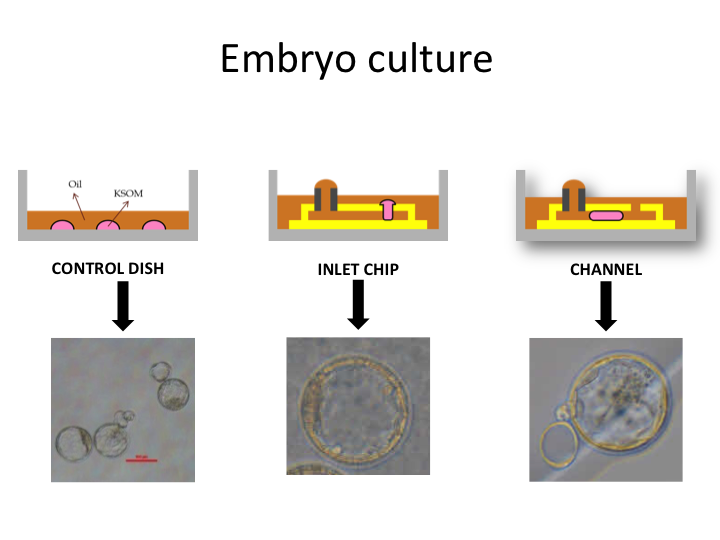Sperm Sorting Microfluidic Chip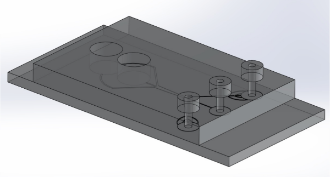
ANSYS – Flow Field Distribution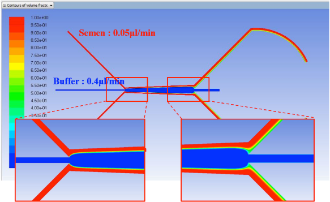
PC Chip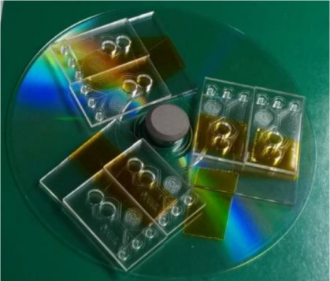
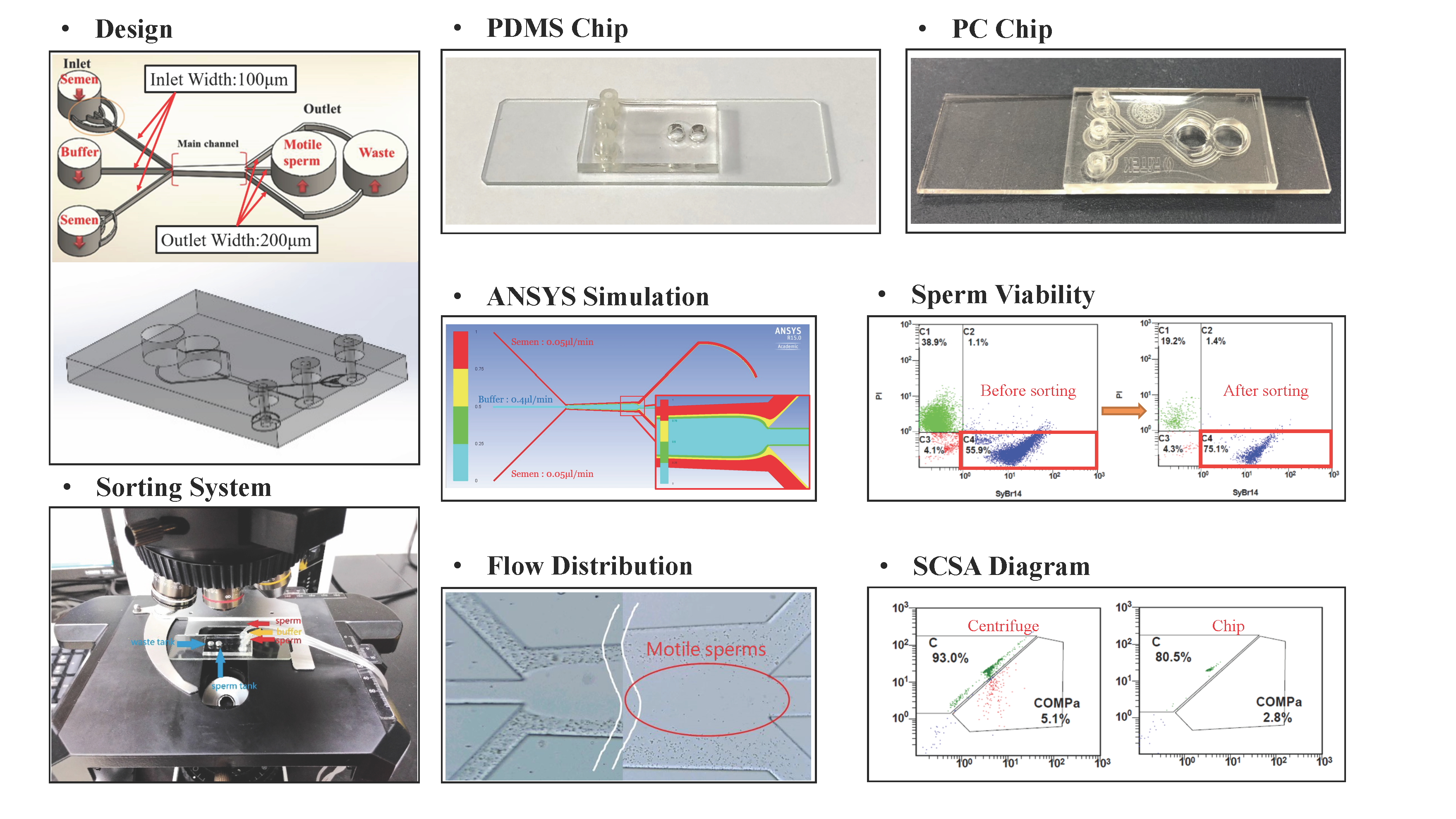
The main causes of male infertility are related to abnormal sperm type, poor activity, and low semen volume. Therefore, our study is devoted to sort good sperms for subsequent assisted reproductive applications. Conventional sperm sorting methods in artificial reproduction technology include sperm-washing, swim-up and density gradient centrifugation. However, these above methods are accompanied by shortcomings such as time-consuming and excessive centrifugal force, and the great gravity field is liable to cause sperm damage. Our study combines MEMS technology, using polydimethylsiloxanes (PDMS) chips fabricated by SU-8 thick film photolithography and soft lithography, as well as polycarbonate (Polycarbonate, PC) chips processed by injection molding to separate poor sperms based on laminar flow and collect high quality sperms by motility through microfluidic chips, which requires only a small amount of semen to operate, achieving low cost and high separation in the field of reproductive medicine.
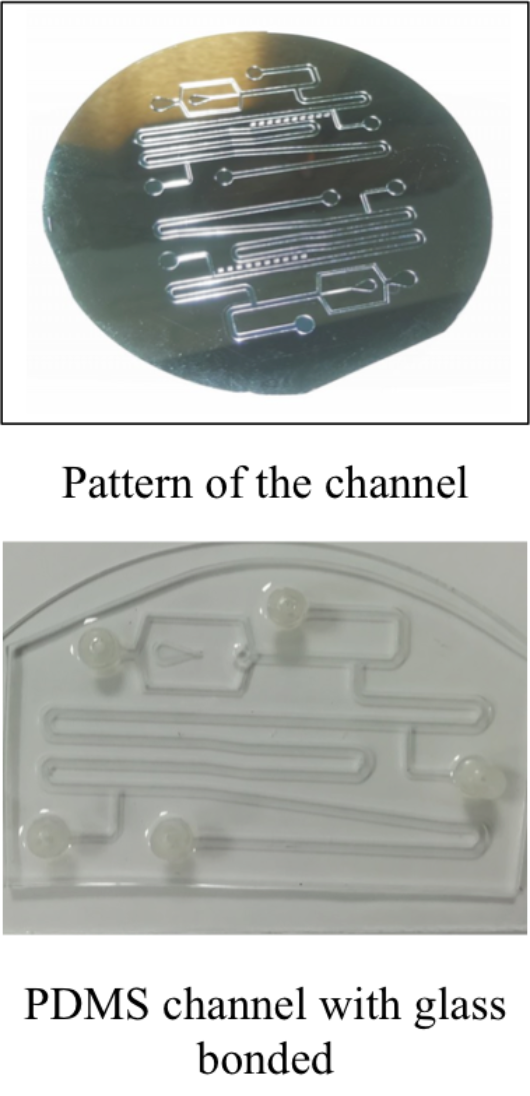
•Embryo culture is a component of in vitro fertilisation where in resultant embryos are allowed to grow for some time in an artificial medium.
•The duration of embryo culture can be varied, conferring different stages of embryogenesis at embryo transfer. The main stages at which embryo transfer is performed are cleavage stage (day 2 to 4 after co-incubation) or the blastocyst stage.
•PDMS is widely use due to its various properties such as, optically clear, and, in general, inert, non-toxic, and non-flammable. It is one of several types of silicone oil(polymerized siloxane). Its applications range from contact lenses and medical devices to elastomers.
